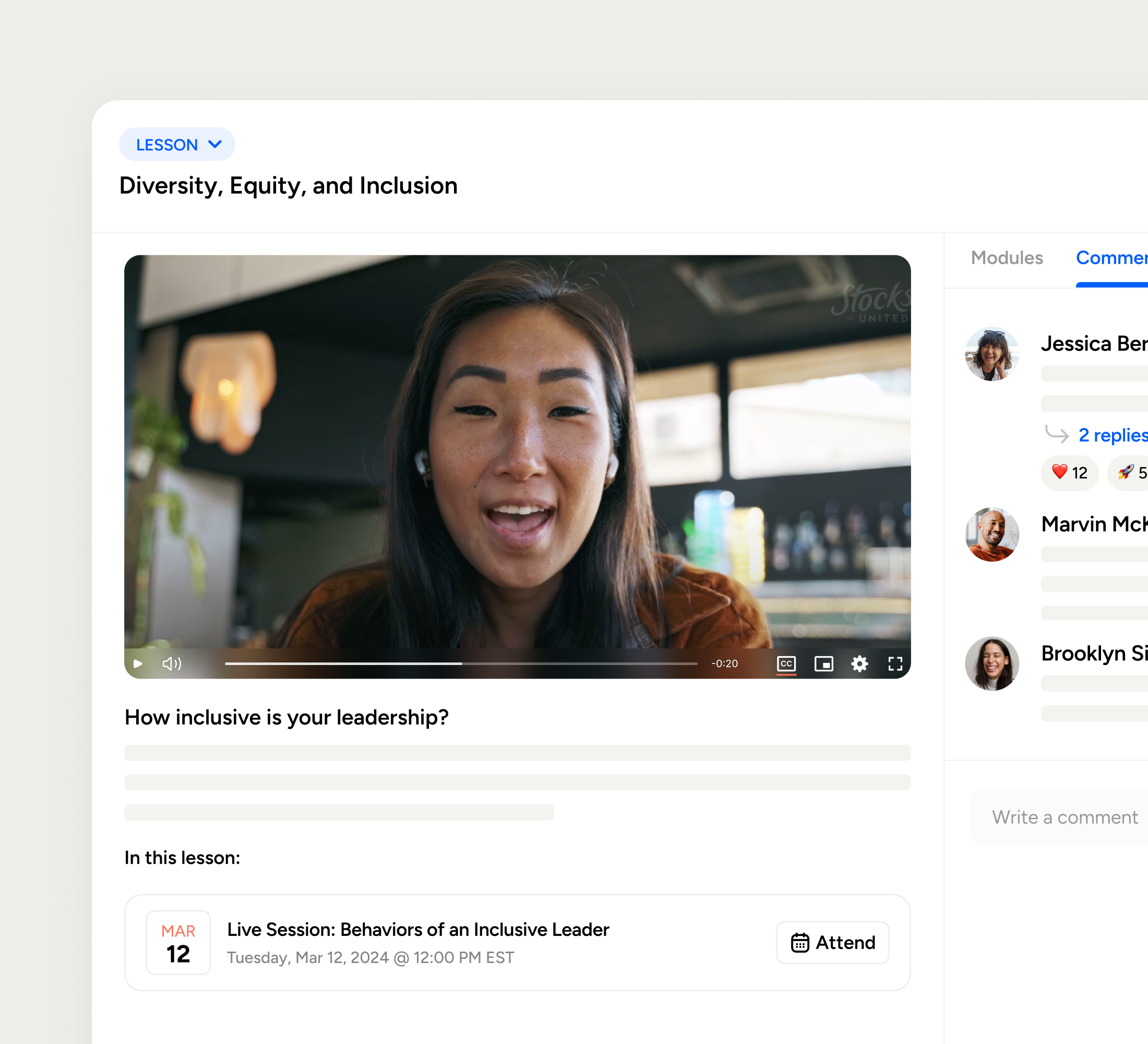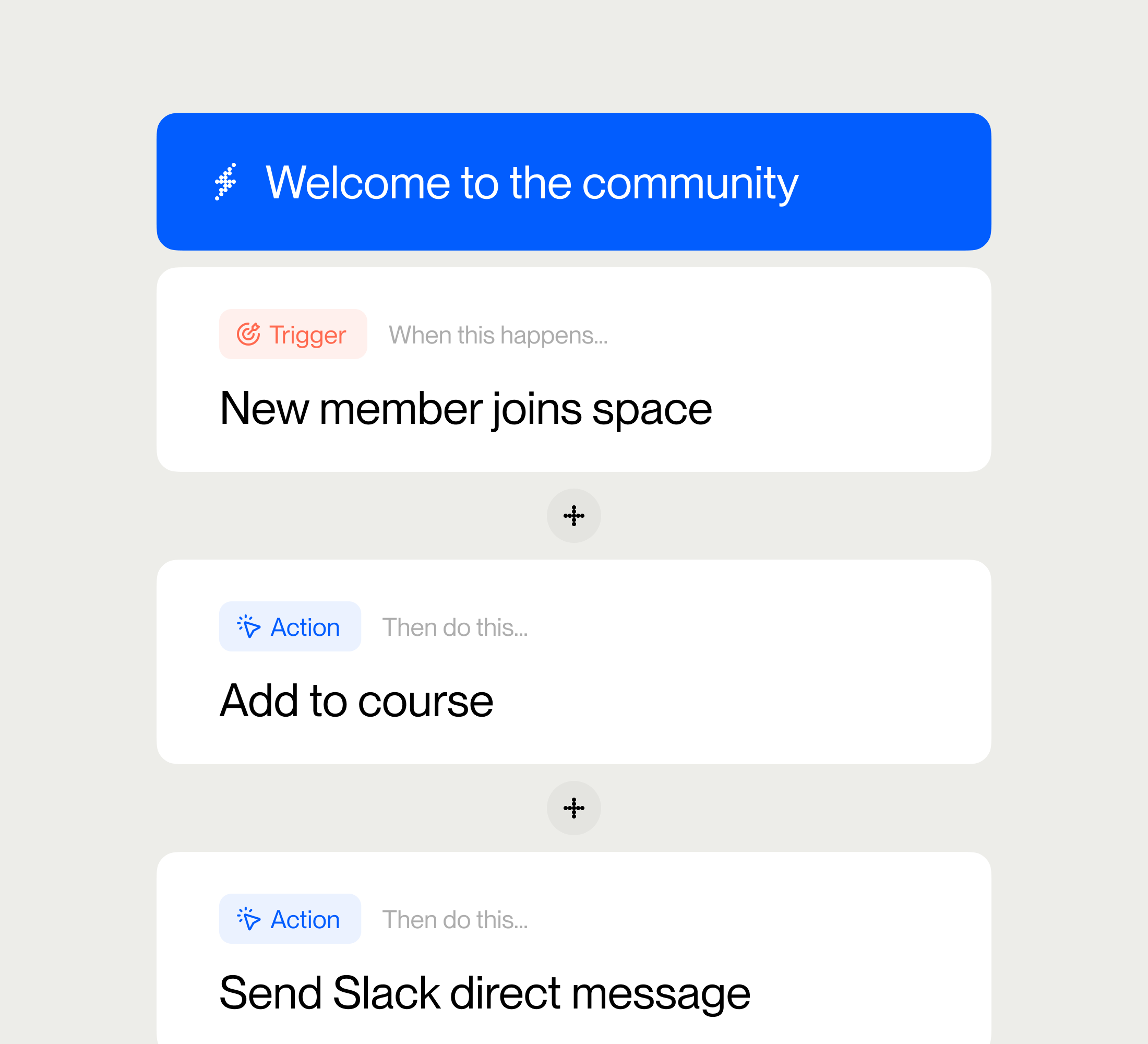Community Engagement Platform for Connected Learning
Empower your academy, training business, or accelerator with a seamless all-in-one platform that unites learning, engagement, and community—powered by intelligent AI.
Book a Demo ->
Empower your academy, training business, or accelerator with a seamless all-in-one platform that unites learning, engagement, and community—powered by intelligent AI.
Book a Demo ->
Create immersive, branded learning experiences that keep your members inspired and progressing.
AI course creation and instant content generation
Interactive lessons with built-in assessments and feedback
Mobile-first access for learning on the go


Foster authentic connections through meaningful discussions, events, and collaborative spaces.
Dynamic discussion boards and group messaging
Live events, workshops, and virtual meetups
Leaderboards, challenges, and recognition tools
Operate at scale with smart automation and actionable analytics—all within a single platform.
Automated onboarding and reminders
In-depth engagement and completion analytics
Customizable workflows to simplify program management

Program Generation. Build an entire course in minutes.
Quiz Generator. Build assessments from learning content.
Image Generation. Create and embed beautiful imagery.
Write with AI. Draft and edit content with AI assistance.
AI Video Enhancement. AI Transcripts, summaries and chapters.
Time Estimates. Show time to complete a lesson.
Ask AI. Provide instant, context-aware answers to members.
AI Insights. Smart insights to help drive engagement.
Smart Nudges. AI suggested engagement nudges.
Suggested Prompts. Recommended questions to dive deeper.
Suggested Replies. Leave no question un-answered.
Message Generator. Drive engagement with AI posts and messages.
A community engagement platform is a digital space where members connect, learn, and collaborate—enabling organizations to foster meaningful interactions and drive participation.
Disco unifies learning tools, community features, and AI automation so you can deliver courses, host events, and spark discussions—all in one streamlined experience.
Absolutely. Disco lets you create a fully branded environment, from your logo and colors to personalized emails and member journeys.
AI powers instant content creation, personalized recommendations, and automated workflows—helping you scale your impact and keep members engaged without extra manual effort.